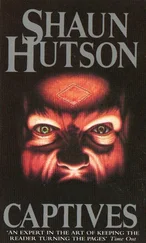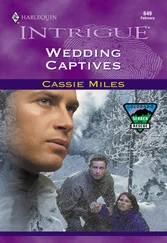Norman Manea - Captives
Здесь есть возможность читать онлайн «Norman Manea - Captives» весь текст электронной книги совершенно бесплатно (целиком полную версию без сокращений). В некоторых случаях можно слушать аудио, скачать через торрент в формате fb2 и присутствует краткое содержание. Год выпуска: 2014, Издательство: New Directions, Жанр: Современная проза, на английском языке. Описание произведения, (предисловие) а так же отзывы посетителей доступны на портале библиотеки ЛибКат.
- Название:Captives
- Автор:
- Издательство:New Directions
- Жанр:
- Год:2014
- ISBN:нет данных
- Рейтинг книги:3 / 5. Голосов: 1
-
Избранное:Добавить в избранное
- Отзывы:
-
Ваша оценка:
- 60
- 1
- 2
- 3
- 4
- 5
Captives: краткое содержание, описание и аннотация
Предлагаем к чтению аннотацию, описание, краткое содержание или предисловие (зависит от того, что написал сам автор книги «Captives»). Если вы не нашли необходимую информацию о книге — напишите в комментариях, мы постараемся отыскать её.
Captives
This is a moving account of a country shaken by communism and anti-Semitism and haunted by recent atrocities, from "a distinguished writer whose vision of totalitarianism is close to Kafka's cloudy menace, universal yet internalized" (Richard Eder,
).
Captives — читать онлайн бесплатно полную книгу (весь текст) целиком
Ниже представлен текст книги, разбитый по страницам. Система сохранения места последней прочитанной страницы, позволяет с удобством читать онлайн бесплатно книгу «Captives», без необходимости каждый раз заново искать на чём Вы остановились. Поставьте закладку, и сможете в любой момент перейти на страницу, на которой закончили чтение.
Интервал:
Закладка:
Drew the sheet of paper toward me and lifted it between my fingers. There lived a little bird in a wood quite removed from the rest of the world. Although she suffered from hunger and cold there, the bird felt akin to the wood. The wood, too, liked to know that her dear little bird could always be found there. Every tree rejoiced when the little bird said “good day” or “good evening.” The little bird would grow stronger when she saw that a tree had grown a shoot or that another had put forth buds, and similarly, she felt as if her own body were injured if a tree were hit by a bolt of lightning or some woodcutter’s axe. A bedtime story. Would reread it once or twice and fall asleep, at last. .
In the eternal present of bedtime stories. Close my eyes. . A bird fancier passes through the wood. Charmingly convinces the little bird to come with him. But there’s already another pretty fowl at the bird fancier’s home! In the end the bird fancier tires of his new little bird as well, abandons her, and goes out into the world with the pretty fowl, all the while forgetting to open our little bird’s cage. The little bird waiting for his return had refused him at first, because she had only felt at home in the wood. Only, like an insistent wizard, the bird fancier had come for her with a golden cage. Having left her home and friends, there was no turning back. The hesitation at the beginning, the humiliation of abandonment. Seduced and abandoned, just like the movies.
We don’t know if the bird fancier returned on time to bring the bird back to life. Her heart beating with emotion, the little bird waited for him and went on hoping. What do you think? Did she wait in vain? That all depends. If he was really far away and it was raining, he wouldn’t come back. But if a yearning for distraction overcame him again, then he would have hightailed it back to the melodrama.
The thin sheets in my left hand. . crumpled into a tight ball. Threw them away. Couldn’t sleep though worn ragged. Among the books on the shelf, spotted the one read long ago. Did this prove the necessity of what was happening to me? Had found a book by chance in a chance room, a book known long ago, in a long ago life. So. . how could this experience signify nothing at all? Recalled an anecdote from a text having to do with the calculation of probabilities: George D. Bryson makes a business trip from St. Louis to New York. His train passes through Louisville, and since Bryson isn’t in a hurry, he interrupts his travels for a day, heads to the best hotel in the city, and at the front desk, by way of a joke, asks if some correspondence hasn’t arrived for him. The smiling receptionist hands him a letter: George D. Bryson, Room 307. Exactly the room that he had just been assigned to. As luck would have it, the preceding occupant of Room 307 was another George D. Bryson, traveling for a Canadian insurance company.
The two Brysons meet and then have to slap their own faces, just to make sure they aren’t dreaming — what’s going on? A sensational occurrence, a coincidence that doesn’t prove or validate a thing? Would it have been any different if these gentlemen were named Tiberiu Covalschi or Bogdan Zubcu? Is there any reason to find an event like this interesting? “Yes, if the event concerns us,” the probabilist wisely replied, to which he added, “always taking into account that the notion of interest is enormously subjective.”
Should a reunion with a book — or a life — read long ago on a winter evening interest me? Winter evening then, expecting a visit from a classmate. . thought he owed me an explanation. . went on expecting him to make important confessions. Is it worth caring about this old incident that sends me back to a time when there were still memories in my head? Or is it better to look for significance within this absurd room? Only if one wants this room, this day to lend itself meaning. . as in the probability narrative: the George D. Bryson associated with New York discovers years after the meeting in St. Louis that his grandfather had left his hometown on his way to the Civil War, before his own son — the New Yorker’s father — was born. And on top of that, it so happens that many years after the war, the grandfather showed his grandson a photograph of a second family of his, who were conceived during his time in North Carolina, where he had remained for several years during the Reconstruction. Then, a second possible coincidence appears: two George D. Brysons could be grandsons of the same man, the father of the Canadian George D. Bryson being the illegitimate son from North Carolina.
Recall the words reserved for my classmate on that winter evening. Recall them exactly: What should we think of a son of the earth who is also at the age when a day, a whole week, a month, or a semester should still play an important role as they yield so many changes and moments of progress — and who, one fine day, should get in the ungodly habit. . or who at least from time to time should let himself fall prey to the pleasure of saying “Yesterday” instead of “a year ago” and “tomorrow” instead of “in a year.”
Pulled the book toward me. If it were a question of interest — that it would be best to fall asleep as soon as possible. But maybe it’d be better to believe in rare events and that leafing through this book would yield the desired revelation. Would have to open to Chapter seven, after page five hundred. Kept recollecting the words and phrases from another time, from a time when there were memories in my head. Leafed through the book page by page without reading a single line, all the way to page 582. The lines danced before my eyes.
Time has an objective reality, even when objective sensation is weakened or eradicated because time “presses on,” because it “flows.” It remains a problem for professional logicians to know if a hermetically sealed can sitting on a shelf is outside time or not. But we know too well that time accomplishes its work even on one who sleeps. A certain doctor mentions the case of a little girl, aged twelve, who fell asleep one day and continued to sleep for thirteen years. In this interval, though, she did not remain a little girl but rather woke up a young woman, for she had grown in the meantime.
Back then, footsteps passed before the frosted windowpanes. They startled me but didn’t halt. The lines danced before my eyes. Completely still, drowsing over the letters, rereading each line — not once or twice but ten times. Except, the inhabitant of this room full of remnants will not come. The murderer will lose his power and desire, his madness and patience. Back then, frost flowers were etched onto the windowpanes. He wasn’t showing up. It was his right to use all possible lies to escape. It was time for battle, and he knew it, and I knew that too, yet I went on waiting in vain.
It wouldn’t be too hard for us to imagine hypothetical beings who live on planets smaller than our own and who have a compressed measurement of time, and for whose “brief” lives the lively rush of our watch’s second hand would have the complete, invisible slowness of the currently advancing hour. We could similarly imagine certain beings whose sense of time is extended in such a way that their conceptions of “Immediate,” “Shortly,” “Yesterday,” and “Tomorrow” would acquire an infinitely enlarged duration within their existence. But what must we think of a son of the earth who on top of that is also of an age when a day, a week. .
A day has gone by, a week. Am still a somnolent high-school student. No, only a day, a week, a Saturday has gone by, and talk of confusion would be justified. Everywhere, machines for typing and checking and intercepting and photographing and following and reproducing: their monotonous patter is here, and myself. . fugitive, lost, stalked from every corner, unable to sleep.
Читать дальшеИнтервал:
Закладка:
Похожие книги на «Captives»
Представляем Вашему вниманию похожие книги на «Captives» списком для выбора. Мы отобрали схожую по названию и смыслу литературу в надежде предоставить читателям больше вариантов отыскать новые, интересные, ещё непрочитанные произведения.
Обсуждение, отзывы о книге «Captives» и просто собственные мнения читателей. Оставьте ваши комментарии, напишите, что Вы думаете о произведении, его смысле или главных героях. Укажите что конкретно понравилось, а что нет, и почему Вы так считаете.












